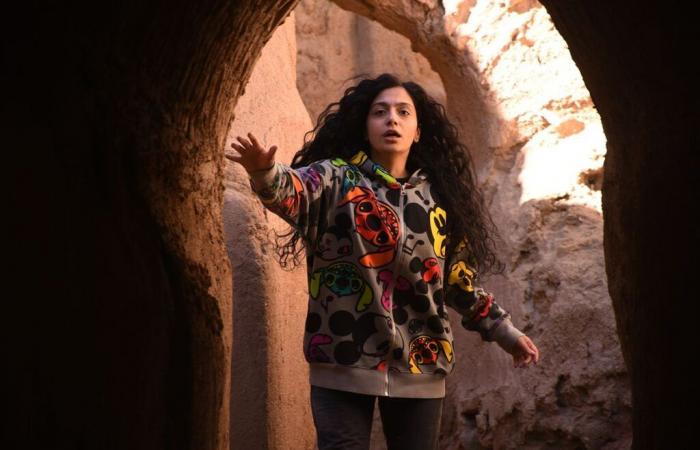Seeds of the wild fig tree is a vibrant tribute to a significant part of the Iranian population that is revolting, with incredible courage, against a rotting theocracy, not hesitating to ensure its miserable survival by mercilessly crushing the many voices that are raised against it and that no longer want to remain silent.
The film itself is an act of courage. An act of courage on the part of the technical team, the actresses and actors as well as a director, then under house arrest (the latter knowing only too well the methods of the ayatollahs and their henchmen, whose heliportation to hell will never come too soon!), having taken risks by shooting the whole thing clandestinely. It is also admirable by the fact that all the participants give it their all. In terms of pace (despite the length of two hours and forty-six minutes, the atmosphere is so intense that we don’t see the time pass!), technique, distribution, the consistency of very endearing characters, it is fully mastered. As a pure cinematographic object, the work also proves to be interesting.
But, well, it is impossible (even if I wanted to and I especially don’t want to!) to detach this feature film from the cries of “Woman, Life, Freedom” so much the filmmaker Mohammad Rasoulof wants them to be heard. And the insertions of unbearable documentary images of demonstrations and repressions are there to remind us of this. Here, reality cannot be separated from fiction.
As for the latter, precisely, we follow a family composed of a father, a wife and their two daughters. The father is appointed judge, which means, while tensions begin to seriously erupt outside, that he must face a possible threat to his existence linked to his profession, to have to manage a terrible quantity of files of beings to be condemned expeditiously, while suffering the weight of guilt. The two daughters begin to take up the cause of those who protest. The mother, for her part, is torn between her conditioning to be a loyal wife, well submissive to the head of the family, and her deep maternal love…
The parents are determined to prevent the current storm from entering their home (clever use, by the way, of windows, often closed or blocked, more synonymous with imprisonment than openness, in front of which one must appear veiled!), in particular by cloistering their children, while forcing themselves to regurgitate the regime’s lies without conviction. However, this storm will penetrate, first through television, through social networks and above all, point of no return, through the face of a friend of the young girls, disfigured and blinded by police repression (giving rise to a long close-up, as terrible as it is fascinating, synthesizing a martyred youth!). An incident will make everything go off the rails, gradually plunging the father into the most terrible paranoia with regard to his loved ones, with the consequence that the family unit will become a reproduction, on its scale, of Iranian society. While the whole thing includes didactic exchanges, it is nevertheless mainly punctuated by a plethora of symbols (including in the title itself!) to vigorously drive home the message.
The last act, taking the tone of a thriller, in which the myth of the Minotaur and the Shining of Kubrick are summoned, as well as the very end, showing a fierce sign of will and hope, finish off the point.
Through the fate of a nuclear family, Rasoulof manages to powerfully and effectively express the tragedy, the chaos, the state of mind and, despite everything, the faith in the future of an entire country.





